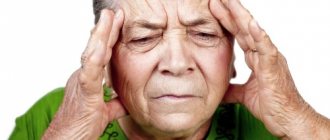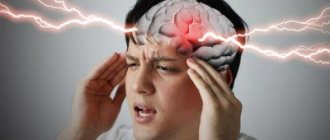Olfactory hallucinations: general characteristics
Phantosmia is a symptom characterized by the sensation of odor without an objective source.
The disorder occurs suddenly and persists for a long time. The most common olfactory hallucinations are:
At an appointment with an ENT specialist
If medical assistance is provided at the initial stage of the development of anosmia, this will allow the functions of the sense of smell to be completely restored in a short time and the nasal mucosa to be put in order.
Treatment of hyposmia, anosmia and cacosmia is carried out with the help of medications, as well as surgical methods. If the loss of smell occurred due to a blockage of the mechanical nature of the mucous membrane, in this case the doctor will resort to sanitation and subsequent rehabilitation of the nasal sinuses.
Loss of smell after a cold is treated by removing mechanical obstructions that block the path to the nasal receptors. In this case, doctors manage with conservative treatment. Only in rare cases does surgery (minimal) be required.
If anosmia is caused by chronic rhinitis or sinusitis, then the underlying cause is first eliminated, and then the cacosmia, anosmia or hyposmia is treated.
If the reason is the presence of allergic diseases, then in this case treatment by an allergist is required.
Is anosmia caused by polyps? Surgery will follow.
If anosmia is caused by a brain tumor, trauma to the nasal cavity, rupture of nerve fibers, or childhood diseases, then the main cause of the impaired sense of smell is first eliminated.
It should be noted that only 8% of patients with traumatic anosmia experience a complete recovery. For others, this important function is only partially restored.
Unfortunately, treatment of anosmia becomes impossible in case of disruption of the integrity of the nerve fibers or atrophy of the nasal mucosa in old age.
Restoring the sense of smell is a rather complex process that requires a lot of effort. To make the disease easier to treat, at the first sign of loss of smell, consult a doctor.
Hallucinations and delusions in older people
Collegial and interdisciplinary treatment
Hallucinations and delusions in older people are often associated with vascular disorders or various types of dementia (dementia). These conditions are difficult to treat because the older person usually has one or more underlying medical conditions and regularly takes medications to treat these conditions. The attending physician must know not only psychiatry and neurology, but also related areas, for example, cardiology. By and large, the treatment of such patients should be collegial with periodic consultations, including, at a minimum, a psychiatrist, a neurologist and a cardiologist.
Treatment at home
The problem of diagnosing and treating psychosis in dementia is further complicated by the fact that these patients not only find it difficult to move in space, change their habits, for example, if they need treatment in a hospital, getting used to a new environment, but also need constant help from other people. In addition, it is almost impossible to immediately select the drug and dose that will be effective in treating delusions or hallucinations, so such patients should be observed at least 2-3 times a week and it is better to select therapy not in a hospital, but at home. This is understood by both patients and their relatives, who for various reasons, including financial ones, are extremely reluctant to place patients with dementia and psychosis in a private clinic, and if they do, it is usually for a short period of time. Treating psychosis with dementia in a private clinic is too expensive, and in a public clinic it is useless and dangerous, since there is usually neither high-quality diagnosis nor high-quality treatment with monitoring of its effectiveness and safety.
Symptoms of psychosis in dementia
Psychosis in dementia can manifest itself as delusions (more often, delusions of harm and persecution), hallucinations (usually visual), disturbances in thinking, memory, attention and behavior. Such patients believe that someone is constantly stealing things from them, plotting to kill, or stalking them. At times, usually in the evenings, they see vague silhouettes of familiar or unfamiliar people or some dangerous persons. Typically, psychoses in dementia rarely appear at its onset, are protracted and flicker in their symptoms.
Often in the terminal stages of dementia we can encounter syndromes of stupefaction, such as delirium or amentia, and of course, such patients must be treated in a clinic where there is intensive care. Psychoses in different dementias have their own specificity, therefore, in Parkinson's disease, Alzheimer's disease, dementia with Lewy bodies, frontal-temporal dementia and other types of dementia, the symptoms will have their own specificity in statics and dynamics, manifested by the preferred severity of one or another symptomatology. It is worth noting that the incorrect prescription of drugs for the treatment of certain diseases of the elderly can provoke psychosis, as, for example, happens when treating Parkinson's disease with a drug that affects dopamine receptors.
; Patients with dementia often have a history of strokes and heart attacks, high levels of sugar and cholesterol in the blood, and impaired liver and kidney function, so one of the rules for treating psychosis in the elderly is as few drugs as possible and their doses as low as possible. To do this, in our clinic we use the results of pharmacological genetics, which allows us to understand which drug should be used to treat the patient, how best to combine medications and what side effects and complications should be expected from drug therapy. In addition, we determine the concentrations of drugs in the blood for more accurate dosing.
Diagnostics
Despite the fact that there are actually a lot of options for dementia, high-quality objective diagnostics (electroencephalography, magnetic resonance imaging, diffusion tensor imaging, positron emission tomography, vascular, brain, neural and visceral tests, etc.) help identify the form of dementia to select the most effective therapy.
Place of treatment
The environment, the correct selection of a nurse, regular communication with relatives, individual and comfortable rooms, high-quality and varied food, leisure, which of course are difficult to achieve in boarding houses and nursing homes, especially if the management of these institutions, pay great attention to the condition of a patient with psychosis due to dementia. trying to save money on everything. In our clinic, we generally treat such patients in separate rooms and prefer to use those caregivers to whom the patients are already accustomed. If the patient’s relatives, unable to withstand the patient’s anxiety, delusions and hallucinations, place him in a psychiatric hospital or a cheap boarding house, then such patients quickly die, literally within a month.
Treatment standards and protocols
Standards and treatment protocols partly simplify the treatment of psychosis in dementia; they are quite well prescribed for neurologists and psychiatrists. For example, psychiatrists usually start treatment with small doses of quetiapine (12.5 mg) or slightly less often clozapine (12.5 mg) and slowly increase the doses of these drugs in weekly increments, carefully monitoring side effects and the patient’s condition. Neurologists traditionally combine memantine with some kind of cholinesterase inhibitor (usually rivastigmine in the form of a patch) and, again, increasing the dosage gradually until the patient’s optimal condition is achieved. Quite often, neurologists also prescribe mild nootropic drugs, drugs that stabilize blood flow in the vessels of the brain and protect it from strokes and cerebrovascular accidents. You should always pay attention to the deficiency of vitamins, micro and macroelements, certain amino acids, manifestations of anemia and chronic inflammation, which, of course, should be eliminated. From a cardiological point of view, to treat elderly patients with delusions or hallucinations, it is necessary to stabilize blood pressure and sufficient blood output from the left ventricle of the heart in order to eliminate cerebral circulatory deficiency, which always increases the manifestations of psychosis in the elderly.
Drug treatment in our clinic
In our clinic, we try not to prescribe antipsychotics in the treatment of psychosis, preferring to treat such patients with drugs that affect NMDA receptors and mood stabilizers. We also drew attention to some similarities in laboratory studies for alcohol dependence and Alzheimer's disease and therefore developed our own new approaches to the treatment of psychosis in this form of dementia (complexones, magnesium and sodium stabilizers, etc.)
Psychotherapy
Psychotherapy only partially helps with psychosis in an elderly person. The patient’s memory is often too impaired to remember what happened during the psychotherapy session, attention is poorly concentrated, and the patient is constantly confused about his delirium. However, special cognitive training aimed at improving memory, attention and thinking is useful, as are light relaxation sessions. In our clinic, to improve the memory and attention of patients with dementia, we actively use biological modulation, which allows us to stimulate memory areas with weak electrical currents during cognitive training, which gives a more noticeable effect. We also administer drugs to such patients through the nose, often using electrophoresis, which eliminates the additional negative impact of drugs on the patient’s liver and kidneys.
In conclusion, it is worth noting that before sending a patient to a clinic, it is always necessary to examine him at home, always in the presence of the patient’s relatives and his caregiver, and ideally, doctors of various specialties (psychiatrist, neurologist, cardiologist)
Which doctor should I contact?
If you suddenly begin to smell a smell from a distance or it seems to you that you feel an aroma that is not actually there, then you should immediately visit the clinic for a comprehensive diagnosis of the whole body. Otherwise, you risk finding out about an unpleasant illness when it is too late. Any self-medication options in this case are highly not recommended.
In most cases, people turn to a therapist or otolaryngologist for help. Diseases of the ENT organs in this case are considered the most common option, but one should not exclude the fact that a specialist may send you to another doctor if he does not find a problem in his area. For diagnosis, modern equipment or a classic examination of the respiratory system and oral cavity are used.
If we are talking about any psychological disorders, then diagnosis can become several times more complicated, especially if the patient experiences phantom odors. In addition to the medical history, the main tool for identifying psychological diseases is special equipment for diagnosing the nervous system.
A person sees smells - what should be done?
In case of olfactory hallucinations, it is necessary to do a culture from the nasopharyngeal mucosa, check the flora for sensitivity to antibiotics, and the presence of fungal pathogens. If all results are normal, consultation with a psychotherapist and neurologist is required.
Often people do not seek medical help and consider olfactory hallucinations to be a minor flaw. But phantosmia requires careful diagnosis and long-term treatment. The sooner the cause of the disease is identified, the greater the chances of successfully eliminating it.
Olfactory hallucinations
- deceptions of the sense of smell of various contents. The list of possible imaginary odors would probably be very extensive. We will limit ourselves, however, to a general description. There are three large groups of perceptual deceptions.
The first consists of hallucinations of unpleasant content
. These are imaginary odors associated primarily with a depressed mood, often also including anxiety, fears, and suspicion of patients. These are the smells of some poisonous substances, rotting, decomposition, decay. For example: “I smell a corpse... It smells like hydrogen sulfide, carbon monoxide, nitro paint... It smells unbearably of something putrid, like a garbage dump.” Trying to somehow weaken or drown out these odors, patients plug their noses with cotton wool, put on respirators, ventilate the room, turn on fans, spray deodorants, etc.
The second group consists of imaginary smells of something pleasant
: “It smells like violet perfume, my favorite... I feel that it smells divine, something inexplicably pleasant, I have never smelled such smells before... This is an indescribable aroma, it gives me indescribable pleasure... Such smells must only exist in heaven , smells of something unearthly pleasant.” Such deceptions of smell, in comparison with the previous ones, are observed relatively rarely and are short-lived. Patients inhale these “smells” with visible pleasure, and this is noticeable by the joyful expression on their faces. Hallucinations of this type are more characteristic of an elevated mood, sometimes including elements of ecstasy.
Finally, the third group of olfactory deceptions are represented by imaginary odors of a relatively neutral nature
. It “smells” like something ordinary, ordinary, to which patients pay almost no attention and do not formulate it in complaints about their well-being. Olfactory hallucinations also vary in where patients identify their source. Thus, patients often localize imaginary odors somewhere in the space surrounding them: in a room, on the street, in a work area, etc. In such cases, their explanations often boil down to the fact that someone is trying to poison them, is warning them of danger or with someone -something irreparable has happened, for example, the corpse of a murdered person or their stolen cat is decomposing.
Patients explain the appearance of pleasant odors somewhat differently. For example, by the fact that they are associated with some miraculous phenomena, as imaginary as the smells themselves, happy events. The sources of imaginary, usually unpleasant odors are often localized by patients somewhere within themselves. For example, the smell of decomposition of internal organs, the smell of corpses, the smell of sweat, urine, etc. is felt. In such cases, olfactory deceptions are accompanied by corresponding interpretations.
Finally, imaginary odors, according to patients, have a completely unusual projection and localization. For example, a “smell” is felt in the stomach, chest or even head. Olfactory hallucinations also differ based on whether patients identify their character or not. In most cases, with more or less certainty in hallucinations, they recognize smells that are familiar to them. In some cases, patients assure, it smells like something completely unfamiliar to them, something they have never encountered before in their lives. In the latter case, obviously, we can talk about a phenomenon similar to other hallucinations, when patients are presented with some completely new images that have arisen as a result of the disease.
Symptoms and complex therapy
The main symptom of anosmia, hyposmia and cacosmia is complete or partial loss of smell. With cacosmia, a perverted perception of odors appears, mainly of an unpleasant nature. Garlic, hydrogen sulfide and putrid odors are common. In rare cases, people smell odors through only one nostril.
We should also talk about hyperosmia. If a person’s sense of smell has increased, then in this case we can talk about the presence of a disease. Unfortunately, this is not a reason for joy, since odors are felt accompanied by headaches, migraines, mental disorders, emotional disturbances and disruption of the functioning of internal organs. Hypersomia causes irritability and feelings of depression.
Stages of development
Delirium is a disorder of object orientation while maintaining personality. The patient exhibits psychomotor agitation, experiences fear and perceives reality in the light of hallucinations.
Psychosis develops gradually or occurs suddenly. There are three main stages:
- The appearance of harbingers. The patient becomes talkative and shows general agitation. His actions are inconsistent, and his emotions quickly replace each other. He reacts sharply to bright light, does not eat his usual food, and cannot tolerate unpleasant odors of even slight intensity. Almost any sound makes him flinch.
- Hypnagogic stage. The symptoms of the first stage intensify. Statements become incoherent. There is no understanding of location, time of day, environment. With closed eyes a person sees hallucinations, with open eyes – visual illusions.
- Vision stage. The third stage of delirium is characterized by the appearance of frightening sounds, images and sensations. Human behavior diverges from reality, sensory delirium arises - the formation of inconsistent ideas dictated by fictitious images.
In the second and third stages, symptoms may subside during the daytime. Lucid windows appear - a time of clear consciousness. In the evening, clinical signs become brighter, and persistent insomnia occurs.
If the underlying disease that caused the psychosis progresses, persistent and occupational delirium develops. These forms of the disease have dangerous consequences and can lead to death.
Olfactory hallucinations: causes and treatment of manifestations
Most often, the cause of the development of phantosmia (olfactory hallucinations) is considered to be brain damage provoked by one reason or another.
These include:
- Traumatic brain injuries;
- Oncological diseases affecting one or another part of the brain;
- Strokes;
- Infectious diseases of the brain.
Among the unfavorable factors contributing to the development of the disease are also noted:
- Mental illnesses such as schizophrenia, personality disorder;
- Epilepsy;
- Intoxication of the body;
- Use of potent medications, psychotropic or narcotic drugs;
- Damage to the mucous membrane of the sinuses;
- Dental problems;
- Diseases of the gastrointestinal tract.
Sometimes olfactory hallucinations can occur during pregnancy. In this case, after childbirth, the pathology disappears on its own; no specific treatment is required.
The most common cause of olfactory hallucinations is brain damage. At the same time, the location of these lesions has a significant influence on the course of the disease. Thus, olfactory hallucinations are observed when the temporal lobe of the brain is damaged; quite strong and vivid hallucinations occur, which can be considered the first sign of tumor formation in this area.
Damage to areas of the brain adjacent to the olfactory center is accompanied not only by the appearance of hallucinations, but also by other mental disorders.
How to cause hallucinations?
To cause hallucinations, it is enough to eat hallucinogenic mushrooms (pale toadstool, fly agarics) or plants (belladonna, dope).
You can also take drugs, alcohol in large quantities, or medications that have a hallucinogenic effect in large dosages. All this will cause hallucinations. But simultaneously with the appearance of hallucinations, poisoning of the body will occur, which may require urgent medical attention, including resuscitation. In case of severe poisoning, death is quite likely. The safest way to induce hallucinations is through forced sleep deprivation. In this case, the person will only face the consequences of lack of sleep, hallucinations will appear, but there will be no poisoning of the body with toxic substances.
Parosmia, arosmia and hyperosmia
People with phantosmia, doctors note, often report parosmia, a condition in which the actual smell is replaced by another.
. So, for this person, a rose may smell like cinnamon, cinnamon can smell like lemon, lemon can smell like cucumber, and so on. But more often, alas and ah, even pleasant smells are perceived here as something unpleasant. That is, roses do not smell like cinnamon (and certainly not roses), but, for example, like glue or car tires.
“Both phantosmia and parosmia are known as qualitative olfactory disorders, that is, conditions in which the quality of smell is altered. On the contrary, quantitative disorders change the strength of the aroma. For example, arosmia is a loss of smell.
Or
hyperopsia – an increase in the sense of smell to an abnormal level
,” writes Lorenzo Stafford. And he notes that rarely does anyone encounter phantosmia separately, since more often it is associated with some kind of quantitative or qualitative olfactory disorder.
Perhaps it's a problem with the sense of smell?
If you constantly ask yourself the question: “Why do I really smell odors that are not there?”, then you should also take into account the fact that the cause of the disorder may actually lie in a violation of the olfactory analyzer. There may be several options for such a disorder:
- hormonal fluctuations - most often observed during pregnancy;
- the use of medications and various drugs after intoxication;
- endocrine disorders of the body - diabetes mellitus or hypothyroidism;
- various psychological diseases, for example, schizophrenia;
- brain tumor or traumatic brain injury.
Also, we should not forget about such a thing as phantom odors. Just try to imagine that you smell gas or fish. The nose immediately begins to pick up a familiar aroma, doesn’t it? If you do this trick all the time, it will be very difficult to get rid of phantom odors.
Sources
- https://SimptomyInfo.ru/simptomy/262-obonyatelnye-gallyucinacii.html
- https://MedAboutMe.ru/zdorove/publikacii/stati/sovety_vracha/o_chem_govoryat_zapakhi_kotorykh_net/
- https://chebo.pro/zdorove/neperenosimost-tabachnyh-toksinov-sigaretnogo-dyma.html
- https://LOR-explorer.com/oslozhneniya/chuvstvuyu-zapah-kotorogo-net
- https://medintercom.ru/articles/kakosmiya
- https://sigarety-sklad.ru/zapakh-sigaret-nosu-prichiny/
- https://hatikva.ru/pochemu-inogda-chuvstvuesh-zapahi-kotoryh-net-chuvstvuyu-zapah/
- https://prodepressiju.ru/psihicheskie-rasstrojstva/gallyucinacii/obonyatelnye.html
- https://www.artremstroi.ru/pochemu-presleduet-zapah-kotorogo-net/
- https://gorlonos.com/nos/kak-vylechit-izmenenie-obonyaniya.html
- https://delhimodi.com/other/oshhushhenie-zapaha-pri-ego-otsutstvii.html
- https://neuro-logia.ru/psixologiya/obonyatelnye-gallyucinacii.html
- https://www.nou-mo.ru/vsd/oshchushchenie-zapaha-gaza-pri-ego-otsutstvii-obostrenie-obonyaniya-pri.html
- https://nasmorkoff.ru/nose/lechim-rasstrojstvo-obonyaniya-anosmiya-kakosmiya-giposmiya-8-narodnyx-receptov/
- https://fb.ru/article/461109/chuvstvuyu-zapah-kotorogo-net-prichinyi-diagnostika-metodyi-lecheniya
- https://doctorlor.org/simptomy/rasstroistvo-obonyaniya.html
[collapse]








